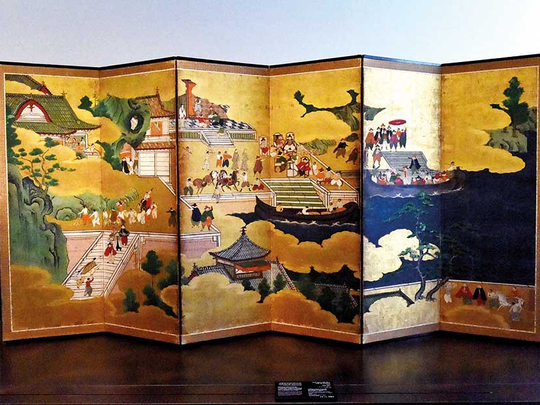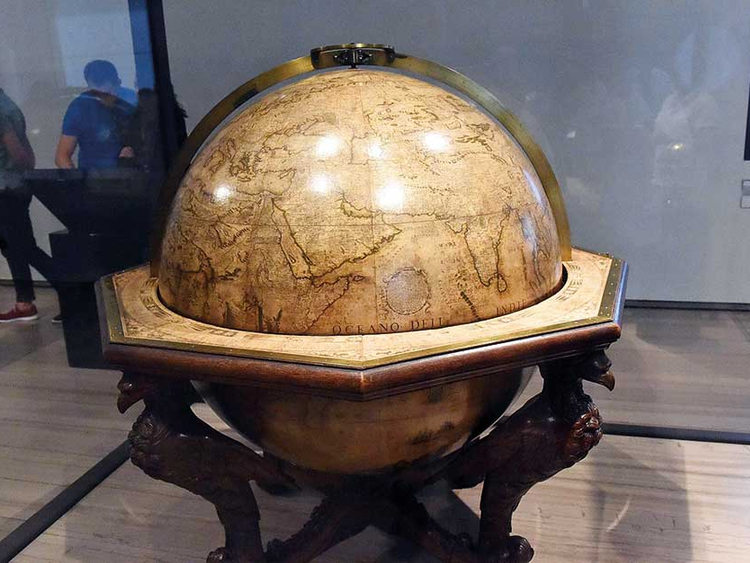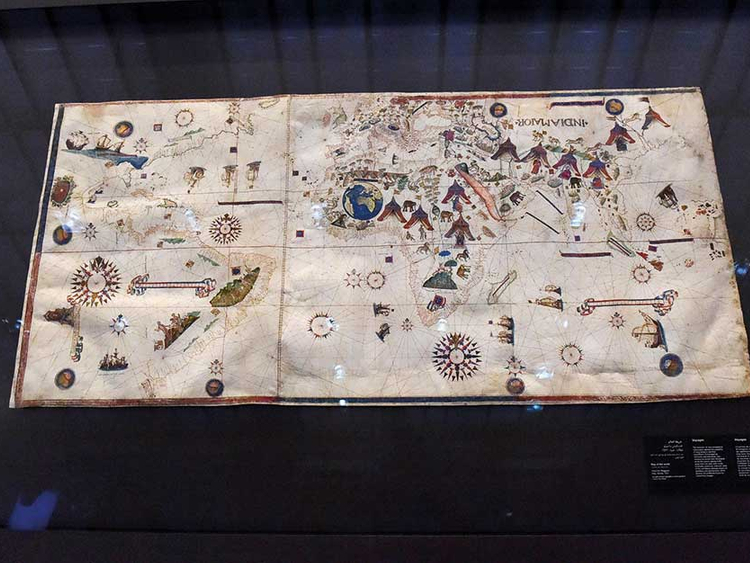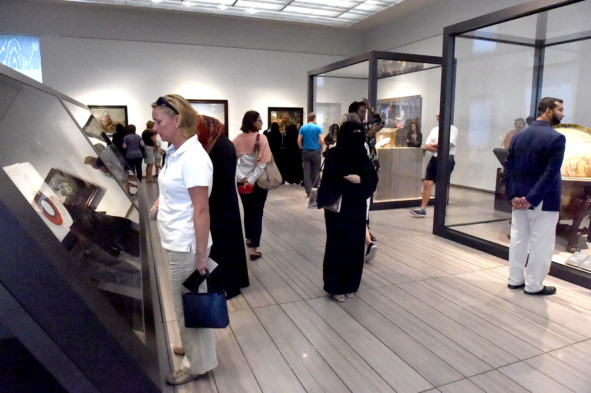
Abu Dhabi: Before moving on to the last wing of galleries at the Louvre Abu Dhabi, it is important to spend some time in an unnumbered gallery, titled Cosmography.
The dim little room holds a treasure that simply could not be left out of a UAE-based universal museum: a nautical treatise by the famous Arabian cartographer, Ahmad Bin Majid. According to Jean-Francoise Charnier, Louvre Abu Dhabi’s scientific director, the treatise demonstrates the contributions of Arabian seamen and explorers to the voyages of the world, thus correcting an omission prevalent in the telling of human history by the West. Add to this the salient fact that Bin Majid was born in the area of present-day Ras Al Khaimah.
The entire space pays tribute to the exploratory voyages that made the world ‘smaller’, featuring a number of stately globes and large maps, including an 11th century celestial globe from Morocco and a 1531 map of the world produced in Italy. Also on show are a series of astrolabes, instruments once used extensively for navigating the high seas; the oldest known astrolabe dating to the 9th century also features among these.
International trading activities also deepened, and history’s record of this is clear in a pair of 1625 folding screens from Japan that shows Portuguese merchants in Japan.
A selection of paintings adorns the walls, telling stories about the growing advancement of maths and sciences, and the enhanced understanding of the outdoors.
As humanity’s thirst for exploration grew, so too did the fascination for exotic objects. The Cabinet of Curiosities is therefore a representation of similar displays of the time, and includes an unusual collection of objects. There is a 17th century Dutch Nautilus shell decorated with mythological scenes, a salt cellar featuring engravings of Portuguese soldiers sourced from the African empire of Benin, and a Roman ivory canister tower with its rich maroon casing.
Timings and entry fee: 10am-8pm on Saturday, Sunday, Tuesday, Wednesday; 10am-10pm on Thursday and Friday
Dh60: Adults
Dh30: 13-22 years
Dh30: Education professionals
Free entry: Children under 13. Members of Louvre Abu Dhabi’s Art Club loyalty programme, journalists, visitors with specials needs and their companions
Next: A Modern World?














